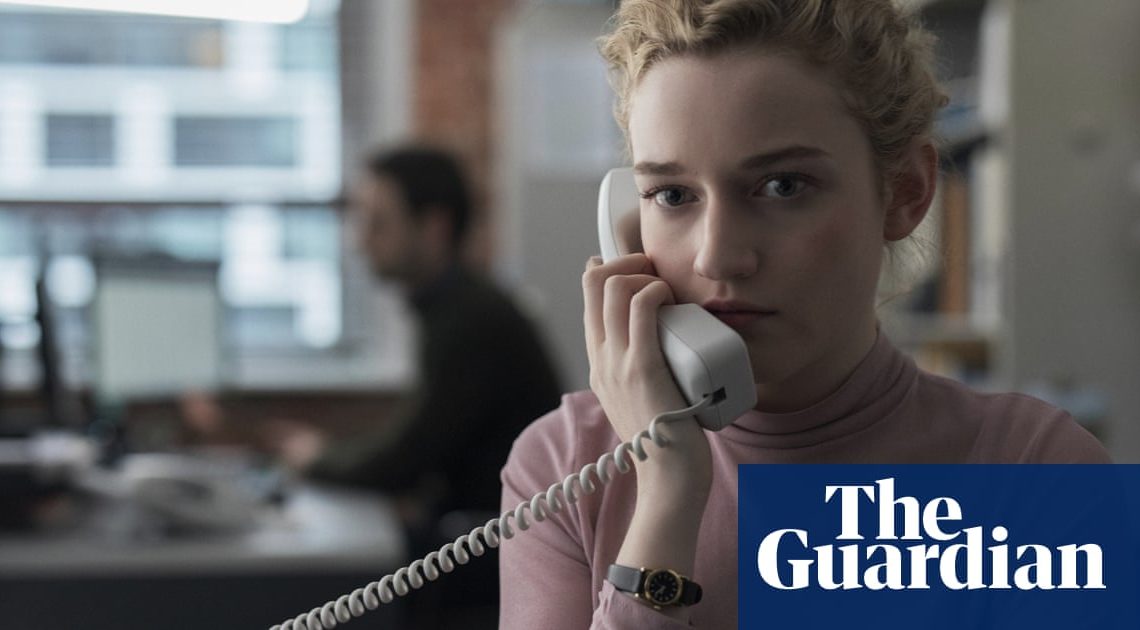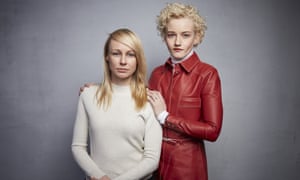
‘It makes people uncomfortable’: inside the Weinstein-inspired thriller about complicity
February 1, 2020Based on interviews with former employees, writer-director Kitty Greens The Assistant looks at a toxic workplace through the eyes of a single young worker

The horror in The Assistant, a new film about an entry-level employee at a Weinstein-esque film production company, trickles out slowly, in bits small enough to leave room for doubt. That is why Jane (a brilliant Julia Garner), the recent college graduate through whose eyes we observe a pattern of sexism and (implied) sexual abuse, is often found hesitating, simultaneously swallowing her concerns and setting her face.
The Assistant, written and directed by Australian film-maker Kitty Green, explores a specific shadow of the #MeToo reckoning that often focuses solely on powerful men, or a stark harasser-victim narrative: the experience of adjacency, and of being an inadvertent or reluctant accomplice to the work culture that protects predators and abuse. Jane, an aspiring producer, is just weeks into her administrative pay-your-dues assistant role at a company steered by an imposing man we never see, and only hear in occasional berating phone calls. The film follows her over the course of one day, as she turns the lights on before dawn, makes the coffee, mans the phones; she also removes syringes from her bosss trash can, accompanies a pretty, young intern to a hotel room the boss later visits and defuses angry phone calls from his wife. At every turn, shes told: nothing to see here.
The film, keeping with its clear parallels to the Weinstein company, emerged out of the reporting of the film moguls alleged decades of sexual assault and workplace harassment in the fall of 2017 coverage which triggered a wave of stories exposing toxic men and a reckoning with abuses of power now known as the #MeToo movement. At the time, Green was working on a project about consent on American college campuses, but switched track after reading the media coverage all focused on these men Harvey Weinstein, the idea that if we get rid of him, the problem is fixed, Green told the Guardian. I was trying to make a film that highlighted, basically, that the problem is so much bigger than just these men. You could remove Weinstein, or ex-CBS CEO Les Moonves, or former Today show anchor Matt Lauer powerful men in the media industry accused of assault or harassment but that wouldnt address the sprawling rot facilitating them, or looking the other way.
If Ronan Farrows Catch and Kill and She Said, by the New York Times reporters Megan Twohey and Jodi Kantor on their Weinstein reporting, focused on complicity at the top level lawyers, executives, celebrity friends working behind the scenes to manage and suppress Greens film goes straight to the bottom rung: the young female assistant wanting a break in a cutthroat business. In preparation for writing the film, Green said she interviewed dozens of former assistants in the film industry, some from Weinsteins two production companies, Miramax and the Weinstein Company, some who work for people who are still in power now. She also expanded from film to entertainment at large agencies and studios, and eventually people in tech, people in engineering they all had really similar stories.
Many of the technical details of Weinsteins alleged abuse are publicly available through court cases (such as an allegation from a former assistant that he made her clean up semen stains on his couch). So Green focused her research on the emotional truth of low-level adjacency how alone they felt, the culture of silence at the company, what that was like for them, she said. The details about the stains on the couch thats all in the press. But what thats like for a human being to be around is a different kind of question. Her interviews centered on the ordinary, not the extraordinary, she said, with former assistant after former assistant revealing a commonality of experience, and disturbing patterns. Those common threads include the usual sexual discrimination a boys club they werent a part of, men promoted quickly as they stay in the same place for years, lunch duty relegated as womens work and more sinister stories. Just feeling so powerless in a situation was the direct common link, she said.

Those experiences are reflected in Janes seeping dread as the mundanity of her office routine collides with damning suspicions of what, actually, is going on behind the bosss door. In the films climactic scene, Jane takes her growing concerns to an HR stand-in (Matthew Macfadyen) who offers a masterclass in polite gaslighting and the damage the promise of youre so smart (be a good girl) can do. Janes confidence spirals under internal conflict; the overhead shots of Jane washing dishes, opening packages or making coffee take on a dissociative feel the out-of-body experience one gets when you doubt or suspect your own ability to interpret what the evidence clearly shows. When HR reports directly to the boss, as Mcfadyens character does, theres little avenue for recourse. She had a job to do, Green said of Jane. I wanted to show that the entire system was sort of structured against her, and to keep this man in power.
Ultimately, Green hopes viewers come away from the film thinking about their own role in this system. Were all part of it, we have been for so long, and thats why this was able to go on.
This is a film that makes people a little uncomfortable, she said, and I think discomfort is a good thing if we want change.
-
The Assistant is out now in the US with a UK date yet to be confirmed
Read more: http://www.theguardian.com/us

